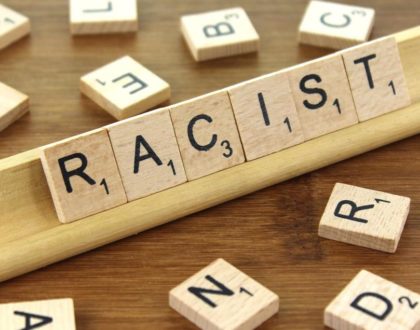“I, Racist” – perspective from a white male InIt delegate

The following is a reflection on white privilege and racism from a white male delegate in our InIt Class of 2017.
I, Racist looks at how deniable white privilege is to white people, and calls white people to get over being afraid of being called racists, and help make some real change. The article addresses how white people from the North are just as racist as those from the South, but are less likely to admit it. It seems white liberals can not bear the thought of being called a racist, and therefore instead of trying to dismantle systems of oppression, they focus on letting the world know how not racist they are.
I can relate to this article because for a long time I was more concerned with telling people that I was not racist, but now I am trying to get passed all of that and acknowledge I am racist, and do my part in removing racism from our society. This article made apparent how much white people are quick to deny their racism after something has happened that actively hurts people of color. White privilege also plays into this a large amount because white people are able to say and do things that only define them as an individual, whereas if a person of color messes something up, their whole race is judged. This means that White people can go out and be independent without fear of their actions becoming a stereotype. White people therefore feel the need to define themselves as not racist because they have the ability to do so. This lends to the fact that when a racially motivated tragedy occurs, white people become more set on telling others they do not contribute to a racist system, so that they can feel good about themselves. White people have the privilege to put their feelings over the well being of other people, and deny that racism exists because they do not see it.
During the night of Immersion Week where we talk about race, we look at how our white members are benefited by white privilege daily. White people like myself do not have to engage with systems of race because we benefit from racism. White privilege shows up in all four I’s. In institutions, whiter places generally are given more funding, and white people do not have to fear having their race play into the possibility of getting a position. Ideologically, white people see themselves in places of power and success, and are told that they are normal, so everything feels regular. On an interpersonal level, white people do not have to face racially motivated prejudices upon interacting with other people. White people are also never pinned as a representative of what their whole race is like when as an individual they do something “bad.” Internally, white people have the privilege to not think about race, and not internalize racism. White people are also able to convince themselves that they are not racist, and make sure to tell everyone around them that fact. Particularly for white liberals, being called racist is like the worst thing ever, and we need to get over that. White people’s feelings should never go before the actual well-being of other individuals.
This article has emphasized to me how important it is that white people get over the fear of being called racist. White people benefit from racism, so we’re all racist, and we need to get over it. We need to become less inclined to worry about being called racist, and more involved with dismantling racism because right now we are not doing much to help. It is important for white people to begin talking about white privilege and racial disparities because we also have the privilege to do so. I will proceed to continue conversations about race in groups of white people, and help get other white people to realize that it does not matter if you are called racist, what does matter is what you are doing to get rid of racism.
